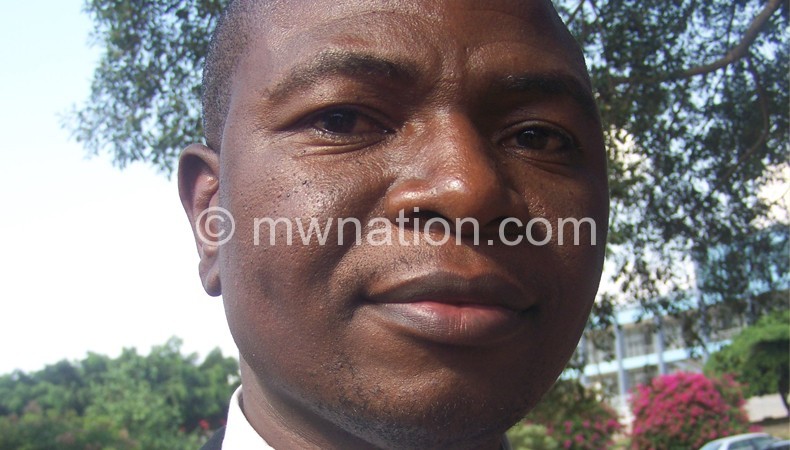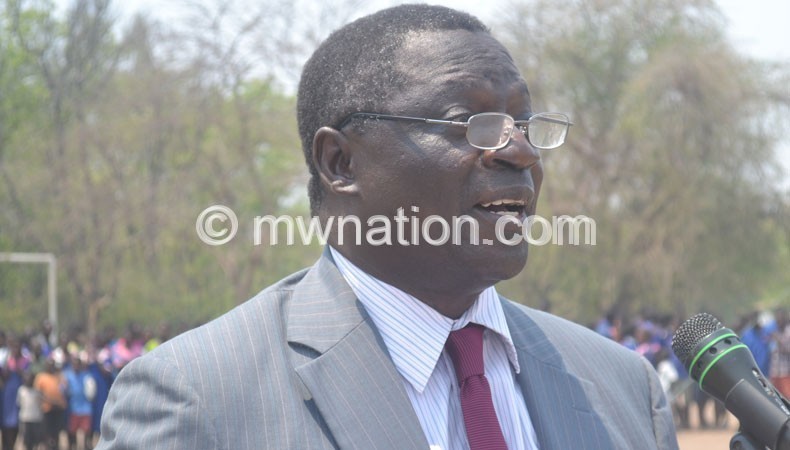Parliament rejects UDF claim for state subsidy
Parliament has rebuffed opposition United Democratic Front (UDF) claim for political party funding for parties represented in the National Assembly, saying the party did not amass the minimum 10 percent of the vote in the May 20 Tripartite Elections.
Speaking in an interview yesterday, acting Clerk of Parliament (CoP) Roosevelt Gondwe confirmed receiving UDF’s communication, but said the party—which ruled the country between 1994 and 2005—did not qualify for the State subsidy after failing to get 10 percent of the national parliamentary votes.

He said according to figures they collected from Malawi Electoral Commission (MEC), UDF got less national parliamentary votes.
Said Gondwe: “We indeed got their [UDF] communication regarding funding, but we referred the matter to the Attorney General [AG] for legal interpretation and whatever the AG advises us, we will go by that because we have no particular interest.”
UDF spokesperson Ken Ndanga said in an interview on Sunday his party had written Parliament on four occasions requesting the release of the funds and followed up with several reminders, but to no avail.
Said Ndanga: “Despite receiving our written communication and several reminders, the Speaker [of Parliament Richard Msowoya] has never cared to officially respond to us.
“We suspect he [the Speaker] is deliberately frustrating the release of funding for his own partisan political reasons and as a party, considering his actions on the matter, we are prompted to seriously question his impartiality, him being vice-president of the Malawi Congress Party [MCP].”
Gondwe, to whom the Speaker yesterday referred The Nation query on the issue, said over the years, Parliament has been basing the 10 percent minimum on the number of votes cast for a political party’s members of Parliament (MPs) and not the presidential candidate.
“The statistics we got from MEC show that total votes for UDF’s 14 members of Parliament do not go beyond 10 percent of the national votes. The party is using votes for its presidential candidate, Atupele Muluzi, that is why we wrote the Attorney General for guidance,” he explained.
But Ndanga dismissed Gondwe’s explanation, arguing Section 40(2) of the Constitution does not specify votes to use when determining the 10 percent threshold.

Reads Section 40(2): “The State shall provide funds so as to ensure that, during the life of any Parliament, any political party which has secured more than one-tenth of the national vote in elections to that Parliament has sufficient funds to continue to represent its constituency.”
According to Ndanga, the intention of the law is to strengthen multiparty democracy in the country and the Speaker’s action contradicts the spirit of the Constitution.
He alleged that Parliament was deliberately denying UDF State funding, a development he said was suffocating the country’s democracy.
Ndanga said UDF would challenge Parliament’s position.
Six political parties won seats in Parliament in the May 20 Tripartite Elections. They are the governing Democratic Progressive Party (DPP), MCP, People’s Party (PP), Alliance for Democracy (Aford) and Chipani cha Pfuko (CCP). However, CCP of Davis Katsonga was dissolved and its sole MP, Katsonga, joined DPP.
According to Gondwe, only DPP, MCP and PP qualified for the State subsidy after beating the 10 percent threshold.





